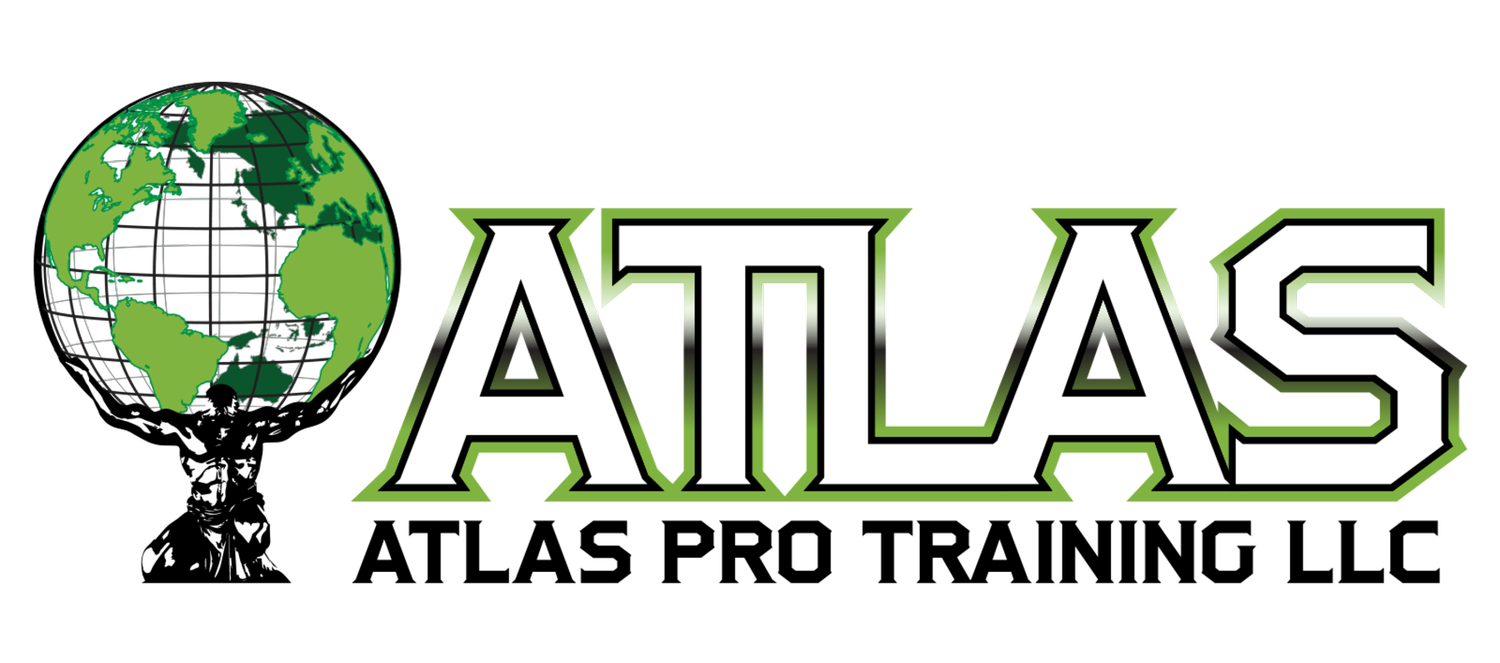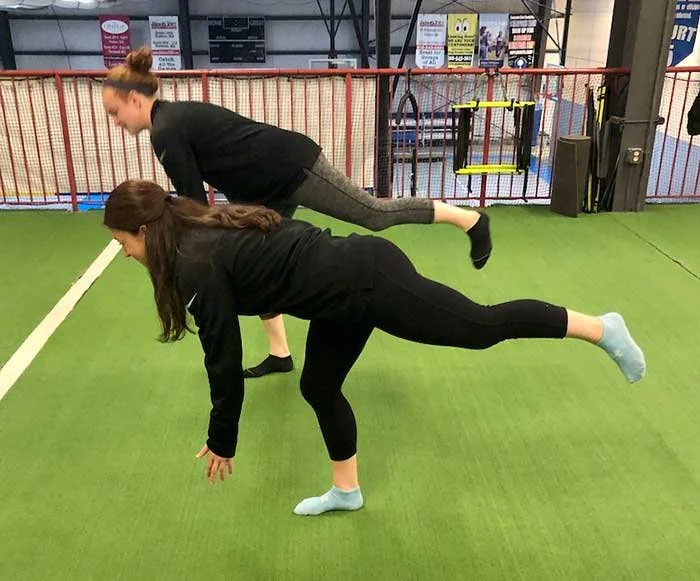
Dynamic Stretching for Sport-Specific Flexibility
At Atlas Performance Training, we recognize that the journey to athletic excellence begins with a strong foundation, and one crucial element of this foundation is dynamic stretching. In this blog post, we'll define dynamic stretching and its benefits for young athletes, explore sport-specific dynamic stretching routines tailored to basketball, football, soccer, volleyball, rowing, and baseball, and offer valuable tips on seamlessly incorporating dynamic stretching into daily training sessions.
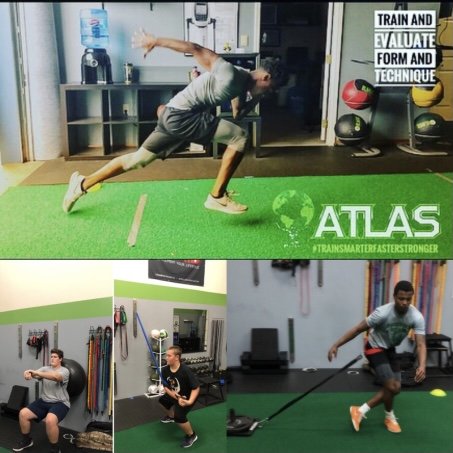
Neuromuscular Mastery: The Key to Youth Athletic Development
In the pursuit of athletic excellence, youth athletes face a unique challenge: harnessing the power of neuromuscular adaptation. At Atlas Performance Training, we recognize that this neurological phenomenon is the cornerstone of athletic development. In this blog post, we'll explore the vital importance of neuromuscular adaptation in young athletes, the training methods and principles that drive this process, and the life-changing outcomes it brings to those who embrace it, as well as the potential negative consequences for those who neglect it.

Unleashing Athletic Precision: Sports-Specific Speed and Agility Training
In the world of sports, speed and agility are the keys to unlocking a player's full potential. At Atlas Performance Training, we understand that not all speed and agility training programs are created equal. In this blog post, we'll explore the paramount significance of sports-specific speed and agility training and contrast it with a more generalized approach that uses speed ladders and agility tools. We'll also delve into the transformative benefits of a customized, sport-specific training approach and showcase the remarkable results achieved by athletes who have embraced this specialized training.
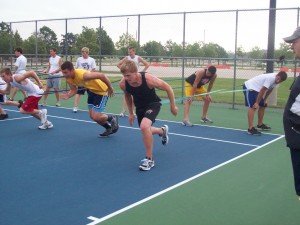
Unleash Your Potential: The Power of Resistance Bands and Bodyweight Moves
In the world of fitness and athleticism, it's not always about the heavy weights and fancy equipment. In fact, some of the most effective workouts can be done with minimal gear, and they're accessible to everyone, especially young athletes. In this blog post, we'll explore the incredible versatility of resistance bands and bodyweight exercises. We'll provide you with a list of effective moves that require little to no equipment, highlighting their accessibility and convenience for young athletes looking to enhance their performance.
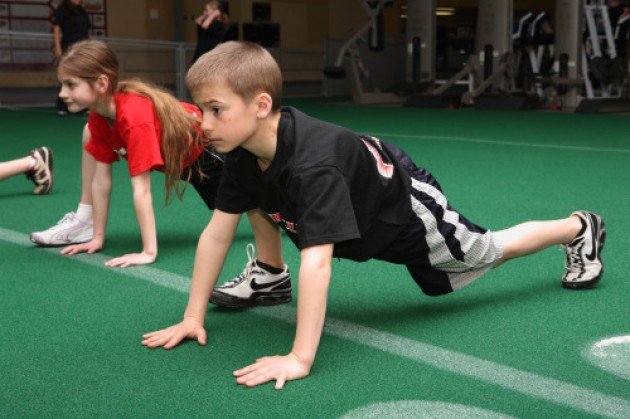
The Importance of Joint Mobility for Injury Prevention for Youth Athletes
As a health and performance coach dedicated to nurturing the potential of young athletes, we understand that their well-being is paramount. One of the key elements that often goes unnoticed but plays a critical role in their journey to success is joint mobility. In this blog, we will delve into why joint mobility is not just an option but a necessity for young athletes, discuss common joint-related injuries in youth sports, provide practical exercises and routines to enhance joint mobility, and highlight how this can significantly reduce the risk of injuries such as ACL tears, High Ankle sprains, Hip injuries, and Shoulder injuries.

Crafting Champions: Age-Appropriate Training for Adolescent Athletes
Adolescence is a crucial phase in a young athlete's journey towards excellence. At Atlas Performance Training, we understand that training during this period should be as unique as the athletes themselves. In this blog post, we'll explore the importance of age-appropriate training for adolescents, focusing on their physical and mental development. We'll also showcase our 11 years of expertise in tailoring coaching to the specific needs of youth athletes on their Long Term Athletic Development (LTAD) journey.

Flexibility Routines for Unleashing Athletic Excellence
At Atlas Performance Training, we understand that flexibility is the cornerstone of an athlete's success. In this blog post, we will delve into the vital relationship between flexibility and athletic performance. We'll provide comprehensive flexibility routines tailored to basketball, football, soccer, volleyball, rowing, and baseball. Additionally, we'll highlight how improved flexibility not only enhances sports-specific movements and agility but also plays a crucial role in injury prevention.

The Power of Lifting Weights: A Personal Journey
Ever wondered why people get into lifting weights? It's a question that often reflects personal stories of transformation and empowerment. Let's explore the profound reasons behind my Journey lifting weights. Understanding the motivations behind weightlifting can be a mystery to those who haven't experienced its benefits firsthand.
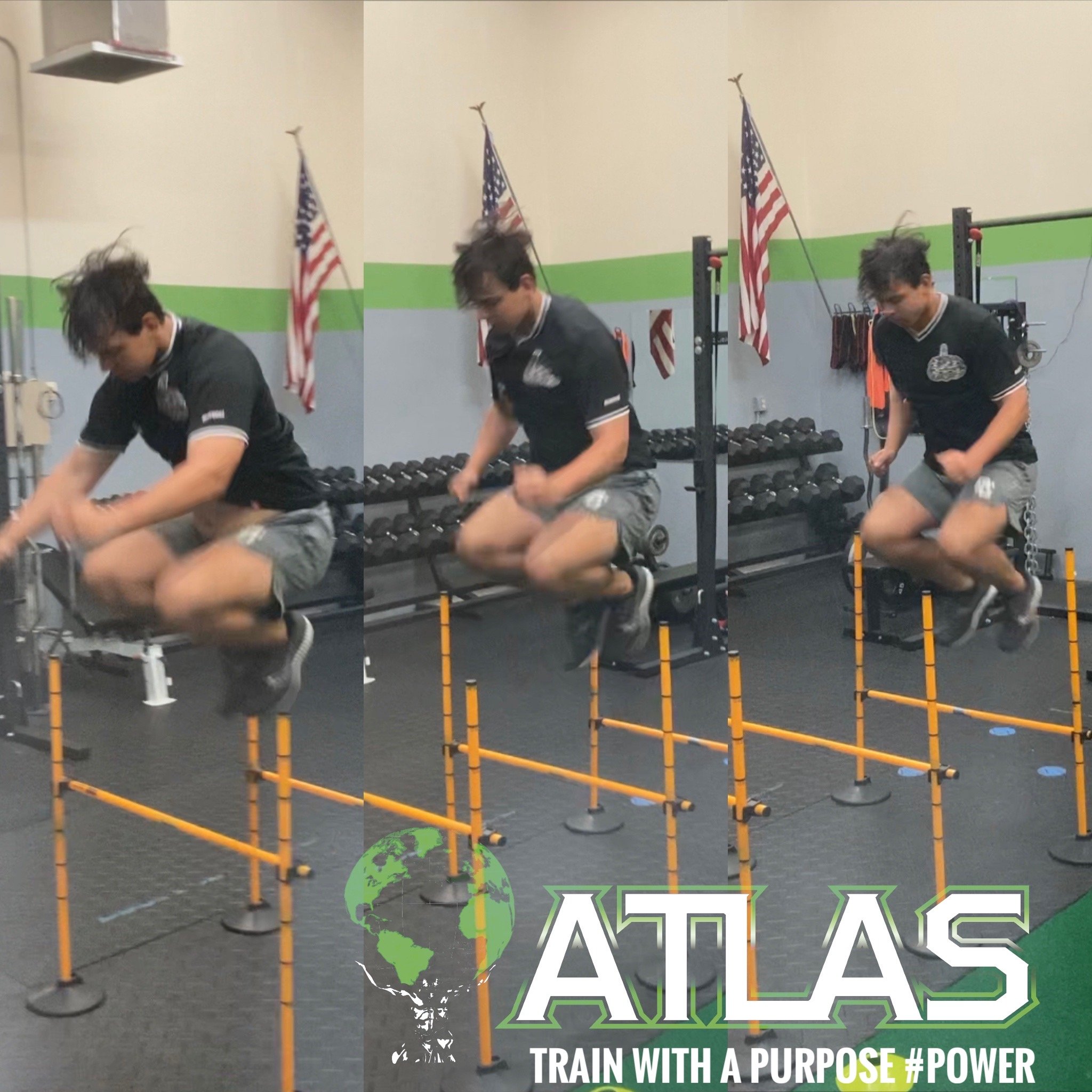
Plyometric Training for Explosive Power
Plyometric training is a dynamic and effective method for enhancing explosive power, a critical component of athletic performance. For teen athletes, plyometrics can be a game-changer when executed correctly and safely. In this blog post, we will delve into the numerous benefits of plyometric exercises, offer a range of suitable exercises for young athletes, emphasize the importance of proper warm-up and technique, and explore how plyometrics can complement weightlifting to increase power.

Mastering the Game: Balancing Skill and Strength in Youth Athletic Development
In the world of youth sports, success isn't just about perfecting a jump shot or scoring a goal; it's also about building a solid foundation of physical strength and stability. At Atlas Performance Training, we recognize the importance of striking a delicate balance between honing sports skills and developing physical prowess. In this blog post, we'll explore the top five ways athletes benefit from this holistic approach to training and how it plays a crucial role in injury prevention.

Progressive Overload in Strength Training for High School and Middle School Athletes
Progressive overload is a fundamental concept in strength training that plays a crucial role in enhancing athletic performance, regardless of an athlete's age. For high school and middle school athletes, understanding and implementing progressive overload can be a game-changer. In this blog post, we'll explore the concept of progressive overload, its positive effects on athletic performance, and provide practical strategies for young athletes to safely and effectively incorporate it into their training routines. Additionally, we'll highlight the critical role of consistency in achieving strength gains.

Lifting Up Young Athletes: Power, Precision, and Performance
Weightlifting, when introduced correctly, can be a valuable component of a well-rounded training program for youth athletes aged 12-17. Emphasizing movement proficiency over heavy weights is paramount in this age group, as it ensures safety and maximizes strength development. In this blog post, we will discuss the importance of introducing weightlifting to young athletes with a focus on proper techniques, injury prevention, and how weightlifting contributes to functional strength and improved athletic performance.

Building Strength Safely for Teen Athletes
Strength training is a cornerstone of athletic development, and it holds particular significance for adolescent athletes. During this critical phase of physical growth and development, proper strength training can have a profound impact on athletic performance, injury prevention, and overall well-being. In this blog post, we will delve into the importance of strength training for teen athletes, explore safe and effective training methods, and emphasize the crucial role of supervision and technique correction.
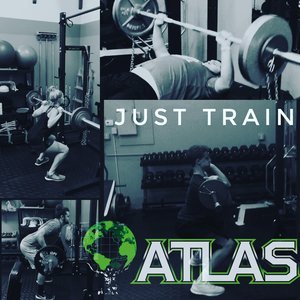
Specific Health and Performance Training For Athletic Development
All great gains and achievements on the field and or court of play are made possible when athletes chose to dedicate themselves to the process of developing the work ethic needed to achieve their goals in the offseason, and between seasons if they are multi-sport athletes to compete and win in the regular and post-season. The four areas of focus mentioned above should be the foundation of any comprehensive training program. There may be other elements that could be included but for the sake of time, I chose to focus on these 4 elements that have shown results for my clients over the years. Let’s also keep in mind that this process is for the long-term growth and development of the athlete and there is no such thing as a quick and easy path to improving the physical and mental development of a youth athlete. Any youth training program should have the long-term development of the athlete in mind, and address all areas that will improve their physical and mental performance…..

Build a Stronger Kid: Lift and Learn
There is an age old question that goes back as far as I can remember, I tried to find out where or who came up with this myth and google failed to give me the definitive answer. But that is not important, what is important is that we are going to look at the benefits of learning to lift by briefly looking at the process of LEARNING to lift weights, which is based on two important principles. The first principle is developing the young person’s Relative muscular strength, which learning to perform basic bodyweight movements like a push-up, bodyweight squat, and lunge Pull-Ups, etc. with proper form and body control. In developing youth strength training programs for beginners exercises should in my opinion be limited to the use of specific types of resistance equipment like dumbbells, rubber bands, and tubes, with minimal intensity (lightweight) after they have learned how to properly execute the basic exercises that improve their Relative muscular strength. Developing relative strength varies and depends on the commitment of the individual youth, and their parents. After a solid foundation of relative strength has been developed, start developing their Absolute muscular Strength. This is when Free weights and resistance machines are added to the training program, examples of Free weight movements are……

Stay Ahead of the Game and Away from Pain
Joint pain and discomfort are two of the main factors that prevent people from maintaining an active lifestyle. If you are a fairly healthy person you may take for granted the normal function of your joints and ignore the factors that will have a negative effect on your joints if you don’t apply some preventative measures to help you manage the pain and discomfort you may experience while exercising. The is no absolute way to eliminate pain from physical activity especially if you are out of shape due to an old injury, a sedentary career, or any other physical limitation.

Strength Training: The Foundation of Speed Training for Youth Athletes
Everyone understands that speed kills, but the foundations of training that skill can be developed in athletes of all ages starting with a good foundation of strength training. There are two types of speed, there is linear speed which is running in a straight line and lateral or what I like to call Multi-directional speed which is transitioning from a linear direction to lateral direction at different angles of movement. Both of these types of speed are developed by increasing the force that is applied to the ground, and the only way to increase the force that is applied to the ground and increase your RFD or Rate of Force Development……..
